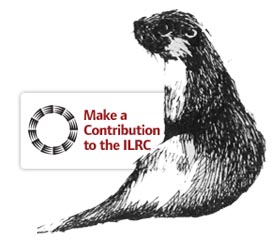The first natural gas ever  produced on the Fort Belknap Indian Reservation flowed to market earlier this year, and more oil and gas development is on the horizon for this north-central Montana Indian community. While natural resource development could provide a much-needed boost to the local economy, if left unchecked it threatens to undo the decades of work the Assiniboine and Gros Ventre Tribes have invested in cleaning up their lands and waters that were destroyed by previous resource extraction.
produced on the Fort Belknap Indian Reservation flowed to market earlier this year, and more oil and gas development is on the horizon for this north-central Montana Indian community. While natural resource development could provide a much-needed boost to the local economy, if left unchecked it threatens to undo the decades of work the Assiniboine and Gros Ventre Tribes have invested in cleaning up their lands and waters that were destroyed by previous resource extraction.
The Fort Belknap Tribes are still recovering from the environmental damage and public health hardships caused by the cyanide heap-leach Zortman and Landusky gold mines that once operated just outside the reservation border. The mining has permanently damaged water supplies, and although reclamation of these mines sites is within reach, the water will still need to be treated in perpetuity to meet minimum water quality standards.
Armed with first-hand experience of empty corporate and economic promises, the Tribes are determined not to become victims of another environmental assault from natural resource developers. Tribal administrators are looking to the Indian Law Resource Center for legal assistance and training so they can proactively address and regulate the threats posed by oil and gas development.
Earlier this year, the Center conducted an environmental training session for tribal council members and employees to help them gain a better understanding of the laws and legal tools they can draw on to protect their environment and their citizens. Plans to expand this curriculum and provide more specific, in-depth training relating to oil and gas development are underway.
"Being able to prevent and minimize damage on the front end is going to be more efficient and ultimately more successful" |
The Indian Law Resource Center has worked with the Assiniboine and Gros Ventre Tribes of the Fort Belknap Indian Reservation for 15 years to address the environmental and cultural devastation caused by the Zortman and Landusky gold mines. "We remain committed to working with the Fort Belknap community as they address these new risks to their lands," said Lucy Simpson, who leads the Center's legal efforts on behalf of the Tribes. "Being able to prevent and minimize damage on the front end is going to be more efficient and ultimately more successful."